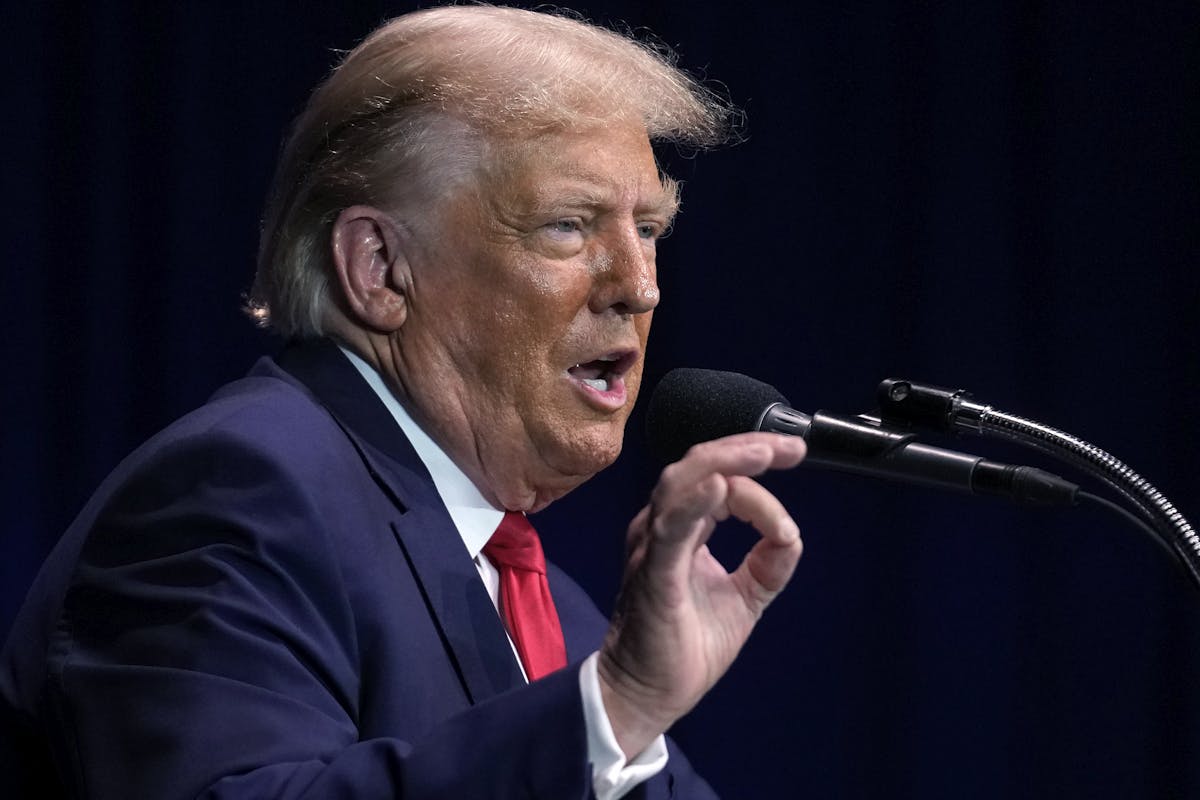Trump Is a ‘Criminal Defendant’ and the ‘Rule of Law’ Means His Gag Order Stands, Appeals Court Rules
The former president, though, is now permitted to issue broadsides against his prosecutorial antagonist, the special counsel.

The affirmation of a gag order against President Trump — albeit with some cropping to narrow its scope to allow broadsides against Special Counsel Jack Smith — could serve as a prelude to a Supreme Court hearing on the bounds of free speech.
The gag order, first issued by a federal district court judge, Tanya Chutkan, was upheld by the riders of the United States Appeals Circuit for the Columbia District, Judges Patricia Millett, Cornelia Pillard, and Bradley Garcia. All three were appointed by Presidents Obama or Biden.
While the circuit riders acknowledged that “some aspects of Mr. Trump’s public statements pose a significant and imminent threat to the fair and orderly adjudication of the ongoing criminal proceeding,” they also found that Judge Chutkan’s order, issued in the January 6 case, “sweeps in more protected speech than is necessary,” and could do with trimming.
All this is important because, in the view of millions of Americans, a central issue in the case is the integrity of the Justice Department and the courts. Rightly or wrongly, that is also an important issue in the 2024 presidential election campaign. The government maintains it is operating free from political considerations. Mr. Trump would argue that this case was brought prior to the election in the hope of compromising his bid for a second term.
The circuit riders found that the core of the order — a prior restraint on speech — is the prohibition of statements “about known or reasonably foreseeable witnesses concerning their potential participation in the investigation or in this criminal proceeding.” Judge Chutkan had barred any discussion of witnesses, in any capacity.
The circuit also banned Mr. Trump from discussing “family members of any counsel or staff member” if the reference is intended to interfere with the case. The former president has referred to Mr. Smith’s wife, Katy Chevigny, as a “Trump hater.” She donated money to Mr. Biden’s 2020 campaign and produced a documentary about First Lady Michelle Obama.
The panel, though, freed Mr. Trump to criticize “counsel in the case other than the Special Counsel,” meaning Mr. Smith. They reminded Judge Chutkan that the “ability to speak about his criminal trial is an important issue given the First Amendment’s broad protection of free speech and the public interest in the transparency of criminal trials.”
To vindicate that principle, the circuit explains that “Mr. Trump is free to make statements criticizing the current administration, the Department of Justice, and the Special Counsel, as well as statements that this prosecution is politically motivated.” This means that Mr. Trump, who is the frontrunner for the 2024 Republican nomination for president, can campaign by running against what he calls a politically motivated “witch hunt.”
The panel explains that they “do not allow such an order lightly,” given that “Mr. Trump is a former President and current candidate for the presidency.” That status ensures that there is a “strong public interest in what he has to say.” Nevertheless, they insist, he is “also an indicted criminal defendant, and he must stand trial in a courtroom under the same procedures that govern all other criminal defendants.”
While the ruling means that the gag order is now back in effect — it had been paused pending its appellate disposition — the holding that Mr. Trump is allowed to publicly air his position that his prosecution “is politically motivated or that he is innocent of the charges against him” could cut some of the sting of its reimposition.
The opinion calls the trial drawn by Judge Chutkan a “complex and high-profile” one, indicating that they could be sympathetic to alterations she makes to the order as the trial date of March 4 draws closer. They offer her guidance, though, noting that any restrictions on Mr. Trump’s right to speak “should account for context, including such factors as the statement’s phrasing, timing, setting, and meaning.”
This kind of close reading could make a literary critic — with Truth Social the text — of Judge Chutkan. Mr. Trump, if he finds the revised order’s conditions too chafing, could ask for an en banc hearing of the entire D.C. Circuit. That tribunal, though, has also dealt him a setback with respect to presidential immunity. He could conclude that his best bet is a direct appeal to the high court.

